(Psst: The FTC wants me to remind you that this website contains affiliate links. That means if you make a purchase from a link you click on, I might receive a small commission. This does not increase the price you’ll pay for that item nor does it decrease the awesomeness of the item. ~ Daisy)
We are Frugalites, and goodness knows we like to save money. One only needs to read the comments section of any Frugalite article to get a sense of what a creative and thrifty bunch we are. While we all may love to clip a coupon or watch the flyers for sales, in this article, I am going to tell a few stories about some of the more difficult choices I’ve had to make when times are tough.
According to many sources, Americans are using credit cards and so-called “Buy Now Pay Later” loans for basic items like groceries and gasoline. Given the challenges we are all facing with inflation, I hope that my stories of tough choices I’ve had to make will be helpful to others. I’m also including a couple of stories about choices I’ve made that didn’t turn out so well in the hopes that these will also be of use.
Not having pets is the most difficult decision yet.
In 1995, I adopted a rescue dog that was at risk of being put down due to her health problems. She was the light of my life, and when I met my partner Peter in 2000, she was the light of his life as well. Indy lived to 11 years of age and provided us with the best companionship that anyone could imagine.
For many years since then, I lived in an off-grid tiny house on wheels that would not have been suitable for the kind of dog I would like to have. Now that I have built my eco-cabin, what financial resources I have are going towards paying down the debt incurred by the build.
Without a doubt, not having any pets at all has been a difficult sacrifice that I have made. I think that not everyone would agree, but this choice is right for me. My goal is to get another dog (the same breed as Indy, an English Setter!) in three years.
Not feeding the birds may seem small, but I loved it.
While this is clearly a smaller sacrifice compared to not having an animal companion, I thought it was worth mentioning. I did get a great deal of enjoyment out of watching the birds feed in my small window-mounted feeder. When my tiny house was on the family farm, I would get such a variety of birds! I would watch them while I sat and drank my morning coffee.
Sometimes, however, reaching big goals requires some sacrifices. Not feeding the birds (for now, I will begin again in the future) is one example of a smaller sacrifice that I have made to reach my big goal of building my own eco-cabin.
Because I have been willing to make many of these kinds of changes, they have added up to something bigger over time. If you are facing a lean budget during these times of inflation, making a number of similarly small changes could be the difference between being able to pay your bills and racking up debt. If you aren’t sure where to start, why not do a personal audit?
Giving up live music saves me a chunk of change.
Ya, so the pandemic kind of helped me with this one. Being out in a rural area helps, too. However, I have local friends who drive to the big cities 2 – 3 hours away for concerts now that things have opened up again.
Me? I’m not spending on live music for the moment. I just had a look at what our local symphony has to offer this season. It looks great! I’m just not at a place where I can afford to spend 50 bucks for a ticket. Now, I know that if you’re talking about popular bands in the big concert venues, you can be talking about hundreds of dollars. Nope, not for me. A difficult decision to make? Yes.
So how do I get my music fix? I listen to the radio. I have a modest collection of music stored on my computer. One playlist of uplifting favorites goes a long way for me. In the summer, I pay attention to opportunities to see live music for free.
Neglecting my dental care wasn’t a lot of fun.
OK, I don’t like to use the word “mistake.” I believe that we all make the best decisions we can with the information we have at the time. So, at one point in my life, I really felt that there wasn’t enough money to care for my teeth. That was a decision that I regretted and ended up paying for in the end, big time!
Cutting out all meat didn’t really work out.
Once inflation really hit, I had a hard time stretching my grocery budget. One example: the price of a pound of butter has basically DOUBLED here from around $3 to more like $6. So, with meat similarly skyrocketing, I just decided to cut out all meat from my grocery budget. Unfortunately, that helped my wallet but not my health.
Yes, I had carefully checked that my diet still contained the daily requirement for iron from other sources. I was still getting what I thought was lots of protein from soups containing lentils and beans, nut butters, and more. I was eating kefir basically every day…but I was not well. My energy levels plummeted. I do manual labor for a living, so that was really tough to deal with. I spoke with my Aunt, who was a nurse, and she encouraged me to try and find some affordable ways to put meat back into my diet.
I checked out a local abattoir my friend had told me about. They were selling flash frozen beef from their own farm at prices much better than the local grocery stores, and the quality was amazing. It didn’t take a huge investment to get my health back. Now, I eat two servings of beef from there each week, at a cost of around $4. No, these servings aren’t two sirloin steaks: they are two good-sized, fairly lean burger patties.
In addition to that, I might buy a modest slice of Black Forest Ham at the local grocery store for around $2 to make a pizza or omelet. I actually have more energy than I have had in ages. Lesson learned!
Tough times call for tough decisions.
It isn’t always easy deciding what to cut during difficult times. Have you had to make some difficult decisions in recent times similar to the ones offered here? Do you have one you can share with us or any lessons learned? Please tell us in the comments below.
About Colette
Colette is passionate about sharing her knowledge of thrifty living and self-sufficiency. She has developed her skills in self-reliance living in the suburbs, the city, and more recently, on her own Half-Acre Homestead. Colette lived five years completely off-grid and without running water in an eight by 24 foot tiny home while designing and building her own 18 by 24-foot eco-cabin. She has just launched her website, Half Acre Homestead. Colette invites you to stop by and visit this work in progress! Coming soon in 2022 is her exciting new online program. Interested in Resiliency, Preventative Health, and Self-Sufficient/Off-Grid Housing (to name a few!)? Stay tuned for more details!
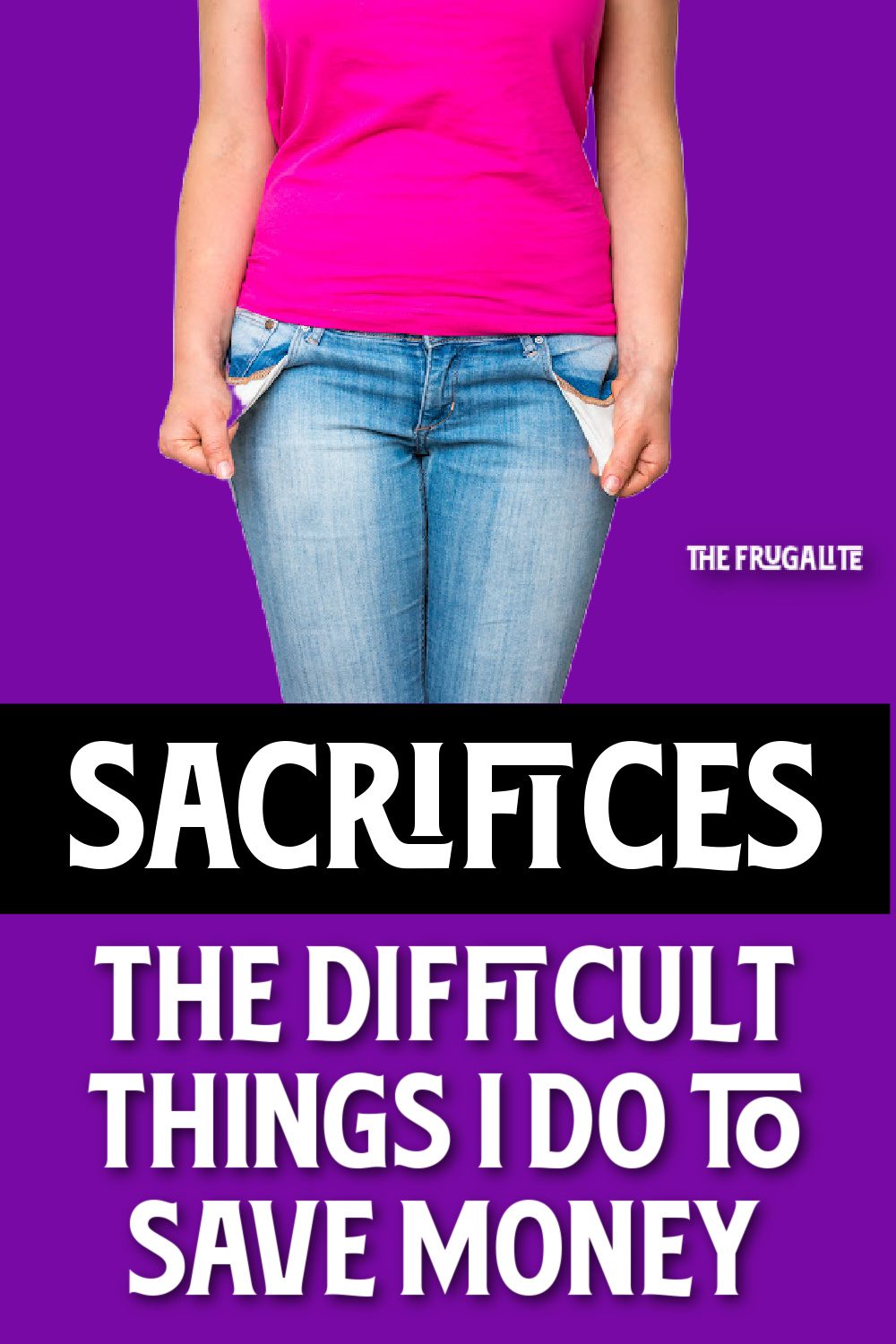

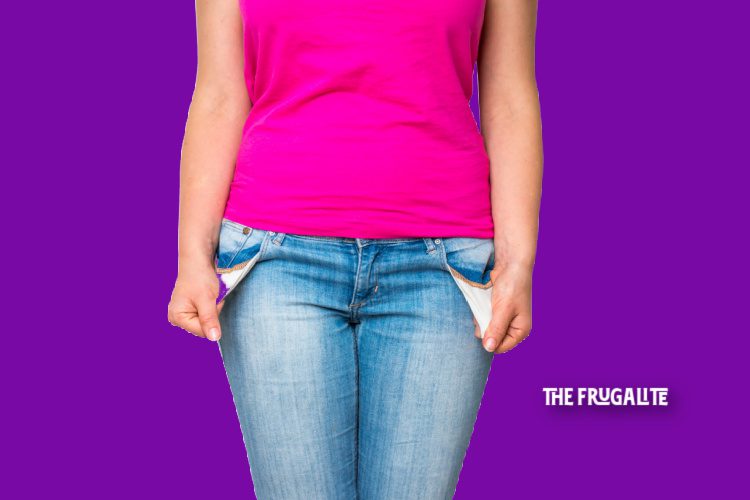
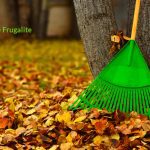


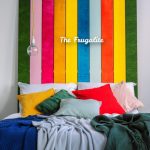
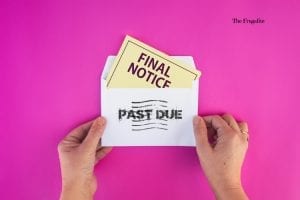

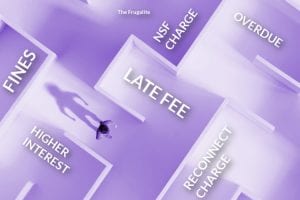
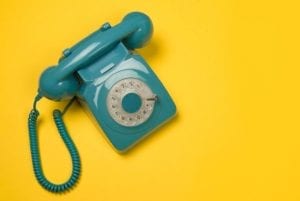

12 thoughts on “Sacrifices: The Difficult Things I Do to Save Money”
Great article Collette! We’re all looking for ways to save money but still enjoy life. Years ago when we lived in Dallas and my son was a cub scout, I contacted the Opera Association looking for free tickets. I was told that we were welcomed to attend the full costumed dress rehearsal for free during the week. It was fantastic and there were only 20 people in the audience. Also, for the Broadway shows that come to town, if you volunteer to be an usher you’re allowed to watch the production for free!
An idea I use to save on batteries and on my electric bill is this… I bought USB rechargeable flash lights, lanterns and fans. I also bought those mini power packs and recharge them at work and recharge everything when I get home. I’ve raised my thermostat to 80 degrees and use fans and spray bottles of cool water to stay cool. I hand wash and line dry indoors most of my clothes. I cook my main meal at work and bring home leftovers. The result is my electric bill was $23 this month!
I’m buying less meat also and making soups, stir fry and omelets. Organic quinoa is 100% protein and I add it to my Oatmeal for an additional protein boost. Lastly I’ve been collecting discarded wooden pallets to use in my fire place to save money on my electric bill.
Keep sharing your ideas on saving money. We are all benefitting during these tough times.
Hi Kathleen, What wonderful ideas you have offered, especially regarding the music. I may even try to ask the local symphony if I can attend their upcoming rehearsals of Beethoven’s 9th. I do love choral music!
You are working WONDERS with your electric bill. Thanks for sharing this idea, as many people can get a sense of the potential savings there. You are quite right about the quinoa. I think I need to do some research to find some good recipes to add to my repertoire this winter.
Thank you so much for taking the time to share such a wide variety of suggestions. There’s surely something for everyone. Much appreciated. Wishing you a great fall!
There is an alternate concept to saving money that is increasing in usefulness in our era. That concept is saving purchasing power — which is increasingly being stolen by governments through the power of counterfeiting the money supply. Several centuries ago European goldsmiths would store people’s gold and issue them receipts. The holders of those receipts found it much more convenient to trade those receipts to buy goods and services instead of carrying around physical gold. When some dishonest goldsmiths would create additional receipts that didn’t represent any gold, they were essentially counterfeiting in order to steal goods and services for which there was no gold backing. The penalty for getting caught was severe.
Then one English king (in order to fund his favorite war) chose to raise taxes on the English population well above the previously published rate. The population rebelled, the torches and pitchforks crowd came out and the king was beheaded. To prevent that beheading from happening again, the Bank of England was created in the 1690s so that purchasing power could be stolen from the population by counterfeiting without fear that the bank or the government could be held accountable.. This concealed what had been a death penalty offense from the overwhelming percentage of the population who did not understand how central bank-created “inflation” was just a cover story (still used today) for stealing more and more purchasing power from the population’s money.
Counterfeiting was used as a weapon by the British during the American Revolution to help destroy the value of the American money (called continentals) — in addition to irresponsible/desperate over-printing by the Americans as well. The result was near starvation. That bitter lesson was still remembered when the 1792 US Coinage Act was passed that required the death penalty for anyone counterfeiting precious metals coinage.
After two previous attempts to impose a central banking scam on the American public had fortunately been shut down, the third attempt in the closing hours of 1913 succeeded after secret British money was used to buy the 1912 election for the socialist presidential candidate Woodrow Wilson. The British confidence in Wilson’s willingness to sign off on the coming Federal Reserve Act (in order to create counterfeited money to fund America’s participation with England in the forthcoming European civil war ) was rewarded as planned.
As one measure of how grossly the American money has been debased since the pre-Federal Reserve times, I have a photo I took in a Fort Worth, Texas museum many years ago. It was a bath tub sign from a long ago hotel that read “First Water 15¢ Used Water 5¢”.
Fast forward to today’s era where only in the last two years the supply of US dollars has been increased by about 40% — and as the prices of food, gasoline and everything else are skyrocketing, the value of dollar savers’ holdings (ie., its purchasing power) is being stolen again in large measure. In addition, the almost certainly forthcoming arrival of grid-dependant digital money will add even more fuel to that fire. Some 90% of central banks worldwide are considering buying into the WEF/Davos/globalist push for all-digital money that they control. These are the same eugenics-obsessed tyrants who want to starve some countless billions of people worldwide.
So with that oh-so-cheery history and future prospects in mind … there is a strong incentive to preserve as much of your wealth as possible — NOT in today’s paper money and cash deposits forms, but in non-counterfeitable stores of value. Historically lots of commodities have been used, such as grains, alcohol, chocolate, precious metals, ammo etc. Other stores of value might be skills you already have plus ones you might still acquire. Businesses you own or can create or invest in might also help. Some varieties of crypto currencies might be helpful but you can expect central governments to attempt to destroy those by regulation, oppressive taxation, or outright banning (such as communist China has done.
You still might be stuck having to pay some bills with central bank counterfeitable digital money. I don’t see a way around that. But surely you can use barterable non-counterfeitable commodities for as much as possible.
Do you see why preserving and growing your PURCHASING POWER instead of merely saving money is a far better strategy?
–Lewis
Hi Lewis, How fascinating the history of “money” is and the means those in power have used, and still do use, to control its value. This was so informative. I appreciate your knowledge and also the time you took to inform all of us about these important points.
I do agree that growing PURCHASING POWER is more important than simply saving money. I like the suggestions you offer, as they are more nuanced than you often read. NOT just crypto and not JUST gold, but there are skills that could be valuable, too. For myself, I believe that my some of my skillsets will either hold their value or increase in value in the next couple of decades: such as my over 20 years of study of herbalism and my ability to recognize and collect medicinal plants on my own land and in my locality.
Thanks so much for all of your contributions to the Frugalite conversation! Wishing you the best this fall!
I’m now rationing my beloved coffee, Cajun coffee w/chicory. You can buy it in the south, cheaply, but I live up North and get it delivered from Amazon. Luxury problem, I admit but it hurts some. I’m super frugal in every way but this is my one luxury.
Hi Denise, Ah! I’m a coffee lover, too! I believe that we all need some special things in our lives that we really enjoy, like a really good cup of coffee. While I’m not able to support our local coffee roasterie at the current moment (they have a coffee for every mood!), I have found a bulk option that I enjoy. What I think I wanted to emphasize in the article was that we all make these choices, but need to set the balance so that we still have a life that feeds us and that we can enjoy on a daily and moment-by-moment basis. Thanks for sharing! Wishing you a wonderful cup of coffee today!
Hi, Colette! I visited your website and found it interesting. Looking forward to more articles there,
I cut myself back to 2 meals daily, each approximately 700 calories. I eat at ten and again at 4 or so. If I need a snack, I have an apple, This won’t work for everyone, but it does for me.
I have spent extra money on gas and food only. I love to walk, and here in Iowa, the weather is great and the foliage is simply gorgeous. No new clothes, furniture, or knickknacks. I love to go thrifting, but I have a rule: if I bring a thing into the house, I must rid myself of something else. I love my stuff, so I don’t buy more. I also watched a YouTube video on what not to buy this autumn. The thing that struck me was fall decorations. I looked around at what I have and decided to get rid of half of it. We truly do not need more picks, more leaves, more pumpkins, etc. My house looks better now that I have decluttered my fall decor. We do not need to decorate every square inch of surfaces. I also decided to let my hair grow out. I do not perm nor color it, but haircuts are getting expensive. A new hairdo will be cheaper yet just as becoming.
My main clear out was my closet. I kept 3 pair of slacks, 2 pair of jeans, 5 casual tops (all of which can be matched to each other), 2 very nice Sunday outfits, 5 pair of shoes, and 2 heavier sweaters. That’s it. I gave 2 bags of nice clothes to a friend who was grateful for them. I have one fake fur coat, (lovely), one medium weight car coat, and one heavy parka for walking. Each has a scarf and gloves to match.
Having a minimalist home and wardrobe is so freeing and cheap.
I am thinking of adopting a cat or dog since our local shelters are so full. People cannot afford to keep them. I would love to have a dog as a companion, and I can afford one. I’m sorry you lost yours. They do leave a hole in your life, don’t they?
Hi Marie, I appreciate your kind words about my website very much. It is a labour of love and it is wonderful to get nice feedback about it. Right now, I am working on an exciting post about how I rescued a Monarch Butterfly.
Thank you so much for your informative and interesting comments here! Regarding your food, I am sure I have read that lower calorie diets are, in fact, very healthy! I am reducing the size of my evening meals in that direction, as well.
I think we are on the same wavelength regarding fall decorating, too! I decided not to buy too much this year. I did use my own corn stalks to decorate out at the laneway….I thought that was quite thrifty of me! That is so nice that you gave your extra clothing to a friend…I bet your can still remember the look on her face when she received them.
If you afford one, an animal companion is wonderful. I look forward to having one in the future. The years we have with them go by so quickly and I will treasure them all the more with my future dog. Wishing you the best with your new pet, if you decide to get one!
You might enjoy this…
A few years ago, I went to a relative’s house in the country. My nieces met me breathlessly exclaiming that I had to see this. They led me to a hill in back where their grandfather had planted coniferous seedlings years ago which had grown to magnificent pines. It looked different as I approached like the color wasn’t a true green. You guessed it! The monarchs were swarming to fly south and they had landed in the trees for the night, hundreds of them. It was truly spell binding. They landed on us, in our hair and clothing. We laughed out loud. I was truly blessed to share that moment with two very lovely young girls.
What a magical memory you have shared, Marie. You were quite right that I would enjoy it! You described it so beautifully that I felt I had the moment of recognition right along with you. Thanks so much! Colette
Can I just mention that I love your articles? Those are definitely some tough sacrifices and I get your point about pets. To properly care for one can be a serious outlay. For those who love animals but can’t afford pets, how about a part time dog walking job or pet sitting type thing? Even a service where you go to someone’s house to care for their pets in situ? Extra money plus pet love could equal happiness. =) If a person is good at gardening, how about a “water garden and care for plants” kind of gig job? That can be a big deal certain times of the year. I sure wouldn’t want to go anywhere if I knew my garden would go un-watered!
Regarding the birds, would it be a possibility to put in a few pots of plants birds love to feed from? It’s dirt cheap to grow sunflowers and millet. You can buy one bag of bird food and have seed for a couple years at least. Then you could grow your own bird seed and it doubles as an emergency food supply. I’ve actually done it. They can’t put germination inhibitors on the bird seed, because it has to be edible by the birds. You can sometimes even find bird seed at the dollar store. Grab some five gallon buckets at the local bakery, usually for free, turn them into pots, put your own compost in to amend the dirt. Not a perfect solution but might be worth looking into.
Cheers!
Hi Redbranch, Nice to hear from you! Thank you so much for your kind words. Lovely feedback from readers such as yourself is the most meaningful part of writing for me. I appreciate how you took the time to think deeply about some possible suggestions for people wishing for pets, their own garden, or wanting to feed the birds. These are all positive and creative ideas that I’m sure our fellow Frugalites will benefit from. I know I did. Thanks very much!